As of the 12th February, Gas and Electricity Year Ahead Wholesale costs show decreases when compared to last month’s report.
The coronavirus has had a big impact on the Oil price, falling from $59 to $55, due to a forecast reduction of Chinese imports. OPEC have tried to counter this fall by suggesting they will make production cuts. Russia normally follows OPEC but have so far refused to confirm they will take similar action. There is less focus on the tensions between the US and Iran, which could potentially impact on Oil and Gas shipments from the region.
The Gas Wholesale cost is at its lowest level since 2016, as illustrated by our graph. There were more than twenty LNG deliveries in January and with a reduced demand from China due to the coronavirus, February should see similar levels. A relatively mild winter has also put less pressure on supplies.
Electricity Wholesale prices are also at levels last seen in 2016. Gas remained the main source of generation at 32%, although the lowest in more than a year, due to record amounts of Wind. Coal supplies a decreasing proportion of our Electricity, at 6% in January and remains an important contributor when demand is high and less reliable Renewables are low. It was announced that Coal generation will end by 2024, 12 months earlier than expected, in order to reduce carbon emissions.
The Met Office forecast for the next month suggests unsettled conditions, with temperatures at seasonal average levels or above and some overnight frosts. The Renewables contribution should remain high with periods of windy weather. The milder temperatures will mean a lower Gas heating demand.
Wholesale prices are extremely competitive, but it should be remembered that the Wholesale element makes up in the region of just 40% of the total cost of an Electricity bill. Gas is roughly 55%.
The influence of higher third-party costs is increasingly noticeable in Electricity contracts. These include, Transportation, Distribution and government policy levies. Over the next two to three years, the way some of these charges are calculated will change, under the Targeted Charging Review, although the details are not yet available. April 2021 is due to see changes to Transportation and April 2022, Distribution.
It is advisable to request supplier offers for all 2020 start contracts, for your consideration. Longer term contracts do currently have a premium, but are still showing value. With a greater chance of a cold spell during the winter months, higher demand and a tighter supply / demand relationship, there is always a risk of price volatility in reaction to local of global events.
Please contact us on 0333 320 0475 to discuss options or to get a latest update.
On the 12th February, the Gas Year Ahead Wholesale cost was 29.46 (p/th), from 33.65 (p/th) in last month’s report and 42% lower than 2019. January was another month of high LNG deliveries and mild temperatures, the main factors for our lower prices. The coronavirus is reducing shipments of LNG to China, some of which are likely to head to the UK. European Storage levels remain high, which does mean there is less risk of any event having a significant impact on costs.
Record levels of Wind generation reduced the need for Gas, which fell to just 32%, the lowest in sixteen months.
A 12-month low Oil price has impacted on Gas, due to some contractual links. This is another result of the coronavirus.
Let us know if you would like us to research your options for 12, 24 and 36 month contracts.
On the 12th February, the Electricity Year Ahead Wholesale cost was 38.26 (£/MWh), from 41.47 (£/MWh) in last month’s report and 29% lower than 2019.
For a 2nd consecutive month, Wind made a record contribution to generation, at 25%. So far in February this is 28%. With more strong winds forecast, we can avoid using more expensive sources, such as Gas.
Coal is still an important but expensive source of supply, meeting additional demand or shortfalls in other areas, such as Renewables, before the remaining power stations close in 2024. In January, it contributed 6% of demand, the highest level in 12 months.
Third Party Charges continue to increase regardless of how the Wholesale element changes, which has been very evident as we look to secure contracts for customers. These charges typically pay for the mechanisms, securing generation at peak periods. The Targeted Charging Review will change how some of these are calculated, from April 2021 and 2022.
Let us know if you would like us to research your options for 12, 24 and 36 month contracts.
Please do not hesitate to contact us to discuss further or if you want us to test the market for you.
"Indigo Swan were professional but with a personable approach. Their market knowledge allowed me to enter new contracts with confidence, this was something I was unable to do with my previous broker."
Joanna Thornton, Estate Manager
"The experience behind the Indigo Swan team, their passion and integrity were all important to us. They clearly understood the market and could provide the best advice. "
Phil Riseborough, Head of Facilities
"We’ve worked with other energy consultants, but with Indigo Swan we get real integrity and service that is way beyond our expectations. We have already saved over £120k."
Jason Wakefield, Procurement Manager
| Cookie | Duration | Description |
|---|---|---|
| TawkConnectionTime | session | Tawk.to, a live chat functionality, sets this cookie. For improved service, this cookie helps remember users so that previous chats can be linked together. |
| Cookie | Duration | Description |
|---|---|---|
| SRM_B | 1 year 24 days | Used by Microsoft Advertising as a unique ID for visitors. |
| Cookie | Duration | Description |
|---|---|---|
| CONSENT | 2 years | YouTube sets this cookie via embedded youtube-videos and registers anonymous statistical data. |
| MR | 7 days | This cookie, set by Bing, is used to collect user information for analytics purposes. |
| _ga | 2 years | The _ga cookie, installed by Google Analytics, calculates visitor, session and campaign data and also keeps track of site usage for the site's analytics report. The cookie stores information anonymously and assigns a randomly generated number to recognize unique visitors. |
| _gat_gtag_UA_12371872_1 | 1 minute | Set by Google to distinguish users. |
| _ga_* | 1 year 1 month 4 days | Google Analytics sets this cookie to store and count page views. |
| _gcl_au | 3 months | Provided by Google Tag Manager to experiment advertisement efficiency of websites using their services. |
| _gid | 1 day | Installed by Google Analytics, _gid cookie stores information on how visitors use a website, while also creating an analytics report of the website's performance. Some of the data that are collected include the number of visitors, their source, and the pages they visit anonymously. |
| Cookie | Duration | Description |
|---|---|---|
| ANONCHK | 10 minutes | The ANONCHK cookie, set by Bing, is used to store a user's session ID and also verify the clicks from ads on the Bing search engine. The cookie helps in reporting and personalization as well. |
| MUID | 1 year 24 days | Bing sets this cookie to recognize unique web browsers visiting Microsoft sites. This cookie is used for advertising, site analytics, and other operations. |
| test_cookie | 15 minutes | The test_cookie is set by doubleclick.net and is used to determine if the user's browser supports cookies. |
| VISITOR_INFO1_LIVE | 5 months 27 days | A cookie set by YouTube to measure bandwidth that determines whether the user gets the new or old player interface. |
| YSC | session | YSC cookie is set by Youtube and is used to track the views of embedded videos on Youtube pages. |
| yt-remote-connected-devices | never | YouTube sets this cookie to store the video preferences of the user using embedded YouTube video. |
| yt-remote-device-id | never | YouTube sets this cookie to store the video preferences of the user using embedded YouTube video. |
| yt.innertube::nextId | never | This cookie, set by YouTube, registers a unique ID to store data on what videos from YouTube the user has seen. |
| yt.innertube::requests | never | This cookie, set by YouTube, registers a unique ID to store data on what videos from YouTube the user has seen. |
| Cookie | Duration | Description |
|---|---|---|
| CLID | 1 year | No description |
| SM | session | No description available. |
| twk_idm_key | session | No description |
| _clck | 1 year | No description |
| _clsk | 1 day | No description |
